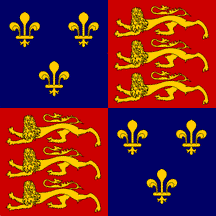Tudors
 The accession of the Tudors to the English throne is nearly coincident with the proper epoch of modern history. The final important change in the European populations had been effected by the settlement of the Turks at Constantinople in 1453. The improvement in navigation was soon to lay open a new world, as well as a new route to that ancient continent of Asia, whose almost fabulous riches had attracted the wonder and cupidity of Europeans since the days of Alexander the Great. Hence was to arise a new system of relations among the states of Europe. The commerce of the East, previously monopolized by the Venetians and Genoese, began to be diverted to the Western nations; its richest products to be rivalled by those of another hemisphere. The various European states, having consolidated their domestic institutions, were beginning to direct their attention to the affairs of their neighbours. The invasion of Italy by Charles VIII. of Prance, in the reign of Henry VII., is justly regarded as the commencement of the political system of Europe, or of that series of wars and negociations among its different kingdoms.
The accession of the Tudors to the English throne is nearly coincident with the proper epoch of modern history. The final important change in the European populations had been effected by the settlement of the Turks at Constantinople in 1453. The improvement in navigation was soon to lay open a new world, as well as a new route to that ancient continent of Asia, whose almost fabulous riches had attracted the wonder and cupidity of Europeans since the days of Alexander the Great. Hence was to arise a new system of relations among the states of Europe. The commerce of the East, previously monopolized by the Venetians and Genoese, began to be diverted to the Western nations; its richest products to be rivalled by those of another hemisphere. The various European states, having consolidated their domestic institutions, were beginning to direct their attention to the affairs of their neighbours. The invasion of Italy by Charles VIII. of Prance, in the reign of Henry VII., is justly regarded as the commencement of the political system of Europe, or of that series of wars and negociations among its different kingdoms.
The sovereigns of the house of Tudor were arbitrary in their principles and character: but their reign, though disturbed by conflicts, both domestic and foreign, was, notwithstanding, less convulsed by war, than that of any other family of English kings. Consider how much England suffered from the want of royal heirs with an undisputed right, how in the fifteenth century this evil had well-nigh ruined the nation, how under Henry VIII it had broken out again, how it had caused all the terrible events of his reign, how it had broken out again at the death of Edward and had led to new horrors, and how the deep-seated evil was still there and might once more prove the bane of England.
The Tudor family was of Welsh origin. Owen Tudor fought on the Lancastrian side during the Wars of the Roses, and married the widow of Henry V. The fortunes of the family were founded by the marriage of the Earl of Richmond with Margaret, daughter of the Earl of Somerset, the heiress of the illegitimate branch of the house of Lancaster. The latter adopted Henry, Earl of Richmond, as the only possible candidate for the throne, and was the one about whom the English exiles built their hopes.
The universal detestation of Richard's conduct turned the attention of the nation toward Henry ; and as all the descendants of the house of York were either women or minors, he seemed to be the only person from whom the nation could expect the expulsion of the odious and bloody tyrant. It was therefore suggested by Morton, and readily assented to by the duke, that the only means of overturning the present usurpation was to unite the opposite factions, by contracting a marriage between the Earl of Richmond and the Princess Elizabeth, eldest daughter of King Edward, and thereby blending together the opposite pretensions of their families, which had so long been the source of public disorders and convulsions. The battle of Bosworth Field August 22, 1485 marked the close of the War of the Roses. In this fight King Richard III, the last of the House of York, was overthrown and slain by Henry Tudor, the Earl of Richmond. When the soldiers of Richmond examined the dead bodies that lay in heaps on the battlefield, they found that King Richard was among them, with the golden crown upon his head. He was proclaimed King by Sir William Stanley on the Field of Bosworth immediately after the battle. They put the diadem which had fallen from the head of Richard on the head of Richmond, and saluted as King Henry VII, the first of the Tudors.
The reign of the house of Plantagenet expired with Richard III. on Bosworth Field. The change of a dynasty forms of itself no historical epoch ; but in a limited or constitutional monarchy this change is generally accompanied by some revolution in the state, which gives it the character of a true historical era. The reigns of Henry VII., and his successors of the house of Tudor, bear a distinct character from those of the Plantagenet princes. The exhaustion of the kingdom through the protracted wars of the roses, and the almost entire annihilation of the greater English nobility, enabled the Tudors to rule with a despotism unknown to their predecessors.
|
NEWSLETTER
|
| Join the GlobalSecurity.org mailing list |
|
|
|

